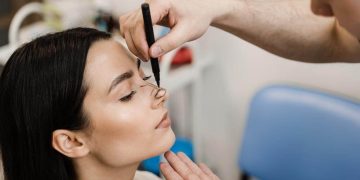Everyone has heard about Alcoholics Anonymous (AA) at one time or another. It is the largest and oldest alcohol support group in existence. The 12-Step program has been a saving grace for many. But what if you’ve already tried it and understood that it didn’t fit you?
SMART Recovery is not as widely-known as AA, even among people with problematic substance use. It is designed for those who want to find an alternative to the 12-step approach. Their new recovery model will be highlighted below. And if it will seem appealing, you can try to seek “smart recovery near me”.
What Is SMART Recovery?
Self-Management and Recovery Training (SMART) is an international organization that provides free, self-empowering, science-based mutual aid groups for those abstaining from any substance. This organization has 3000+ separate support groups in 20+ countries globally.
SMART Recovery vs. AA: Major Differences
One reason why AA is so well-known is that it has been around for a long time. It was established in 1935. SMART Recovery was founded in 1994. Thus, fewer people are informed about this option. But let’s proceed to the main differences.
● Unlike AA, SMART is a secular organization for sobriety (SOS) that doesn’t involve spiritual components.
● SMART makes focus on self-reliance rather than powerlessness. This means the absence of sponsors.
● This type of platform encourages membership for months or years, compared with a lifetime commitment of 12-Step meetings.
● According to AA, addiction is a chronic disease and people cannot control it. SMART agrees with an “addiction is a disease” argument. But their participants are not directed to admit they are powerless against substances. Instead, SMART Recovery meetings focus on self-empowerment and problem-solving.
Despite these differences, both organizations have the same goal – to help people become independent from their addiction.
SMART Recovery Meetings
SMART Recovery hosts in-person meetings. But they mainly provide online meetings available in multiple languages and time zones. You can get access to the online program and find more detailed information at their website.
You must register to start using a 24/7 live chat, a message board, a resource library, or daily meetings. Meetings last 60-90 minutes and are led by trained volunteer facilitators. A chat room is a place for getting support for specific disorders and situations. There’s almost always someone there as the participants are all over the world.
Here’s a piece of advice if you’ve already registered for “SMART Recovery meetings near me”. Participate in a minimum 5 meetings before making your conclusions on SMART Recovery. During this time, you will get a full picture of the organization and see whether it meets your needs.
SMART’s 4-Point Treatment Program
SMART Recovery approaches addiction with a 4-Point Program based on the current clinical research study.
Point 1: Building and Maintaining Motivation
First of all, a participant determines which “Stage of Change” (SMART has 5 of them) he/she is in. They start working to take things a step further. Motivation is strengthened through rigorous assessment of the advantages of sobriety and the negative consequences of continued substance abuse.
Point 2: Coping with Urges
Experiencing cravings and urges is a normal part of recovery. The Rational Emotive Behavior Therapy (REBT) arms participants with effective coping strategies that minimize the risk of relapse when triggers arise.
Point 3: Managing Thoughts, Feelings, and Behaviors
Negative thinking patterns are the primary culprits in fueling addiction. An awareness of irrational thinking is key to overcoming it and tuning a mindset on a positive vibe. Once a person can regain control over their thought process and emotions, they start making healthy and responsible life choices.
Point 4: Living a Balanced Life
This point is about setting plans for the future. It’s important to have realistic expectations, including those of sobriety. An individual seeking recovery must not avoid the most problematic areas that are crying for help but address them in the first place.
Finding a balance requires working with honesty and determination. And if you are ready, go online for “SMART meetings near me”.
SMART Recovery’s Tools, Benefits, and Efficacy
The science-based approach to SMART Recovery harnesses principles and techniques of Motivational Enhancement Therapy (MET) and Cognitive Behavior Therapy (CBT), and some other scientifically confirmed treatment methods.
Each of SMART’s 4 Points has a toolbox that provides a variety of tools and techniques: Change Plan Worksheet, ABC tools (for coping with stress and urges), Hierarchy of Values, Cost/Benefit Analysis, just to name a few.
People who use the SMART Program experience the following benefits:
● Moving away from addiction;
● Replacing self-destructive thoughts with more rational and effective thinking patterns;
● Boosting motivation to stay sober;
● Gaining the urge-specific and lifestyle coping tools and techniques;
● Leading a healthier, better life.
One study compared the effects of different support groups for individuals with alcohol use disorder. In general, SMART Recovery showed lower results than AA in terms of alcohol abstinence, complete abstinence, and alcohol-related issues. But when controlling for treatment goals, SMART Recovery members who actively pursued sobriety managed as well as AA participants. This supports a popular opinion that commitment is key to success, regardless of group choice.
Final Advice
Attending “SMART Recovery near me” can be a valuable step toward healing. But no matter what group you choose, it’s not a substitute for medical care. Before making your choice, it will be a wise step to visit an addiction counselor first. Some stages of addiction require residential or outpatient rehab treatment.
A support group can be a part of your treatment process and is usually started as a form of aftercare. SMART Recovery might be just what you need if you are seeking a connection with other people who are also looking to maintain sobriety and resources specific to the addiction recovery process.
Some feel skeptical about self-help groups, often because of their distorted and shallow image created by television and the movies. You will see the difference when you actively interact and share with others at the meetings.






